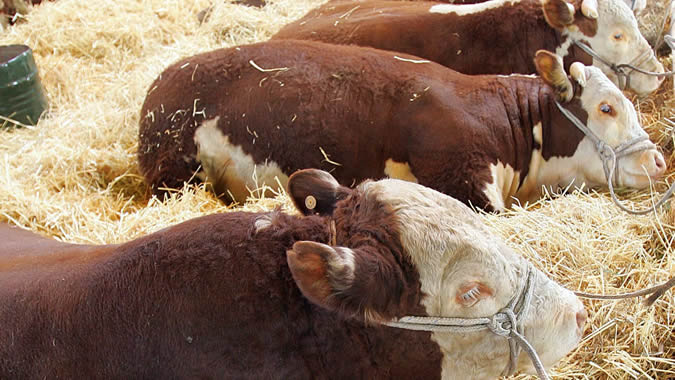Uruguay's Agricultural Sector, An Example of Structural Change
Work area(s)
Report indicates that, even though Uruguay’s economy heavily depends on exports based on natural resources, changes made to the agricultural sector have improved the country’s competitiveness and its social indicators.

According to a recent publication by ECLAC, even though Uruguay's economy heavily depends on exports derived from natural resource-intensive activities (70%), changes introduced in the agricultural sector have improved the country's international competitiveness and its social indicators. This progress indicates, according to the organization, that Uruguay is creating the conditions to achieve a more inclusive social development.
In the report Changes in Uruguay's Agricultural and Agro-industrial Dynamics and Public Policies (Spanish only), published by ECLAC's office in Montevideo, authors Carlos Paolino, Lucía Pittaluga and Mario Mondelli attempt to answer the question of whether the country is creating conditions for sustainable structural change in the medium and long term, in the sense that ECLAC defined this in its institutional document from 2012, Structural Change for Equality: An Integrated Approach to Development.
The study indicates that the changes introduced in the agricultural sector are the result of active policies, which mount platforms of various types and produce public goods. On this foundation, private goods that encourage medium- and long-term competitive development are developed and strengthened.
The report presents three case studies that illustrate these "new times" in Uruguay's agricultural/agro-industrial base of production. The first one is the traceability of the entire beef cattle stock and the traceability of meat itself (black boxes in the meatpacking plants), which enable complete control of the production process for the meat products that Uruguay exports. The second refers to developments in the regulation of the use and management of farming soils, while the third addresses active policies related to rural development and adaptation to climate change in the country.
The incorporation of technical progress into these processes of innovative development enabled an improvement in social indicators, according to the report. For example, rural poverty fell sharply, declining from 17.9% of families that lived in that environment in 2006 to just 2.9% in 2012. The same trend occurs with poverty indicators in places with fewer than 5,000 residents, where many people who work in the agricultural sector live, which dropped from 35.3% in 2006 to 7.1% in 2010.
The authors conclude that these initiatives based on public policies not only generated public goods, but they also enabled the emergence of platforms and opportunities that increased international trust in the country, which in turn attracted investment in the aforementioned areas.
They add that the main focus for the coming years should center on boosting technological and institutional/normative development so that the country can keep advancing in the construction of genuine international competitiveness and based on new skills that emerge from the interaction between public and private players specialized in natural resources.
Nevertheless, the authors warn that in order for Uruguay to maintain its international competitiveness, it will need to continue making progress on creating new infrastructure, expanding the national energy matrix, and on education.
Related content
Subregional headquarter(s) and office(s)
Type
Country(ies)
-
Uruguay